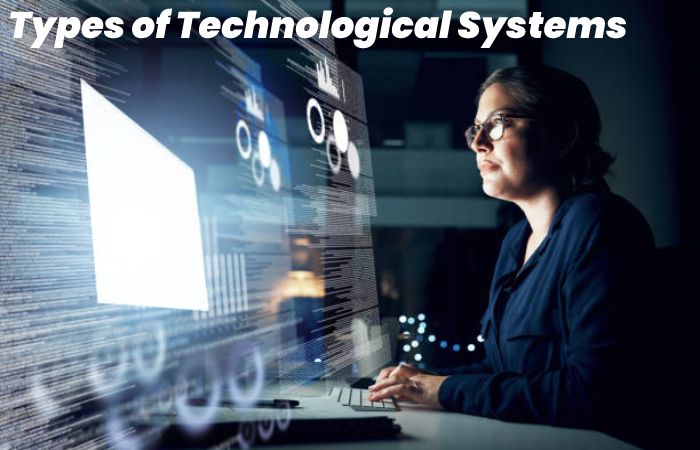Table of Contents
Technological System Definition
A technological system refers to elements, variables, and processes, all internally interrelate, allowing the human being to transform his environment to facilitate a task or improve his quality of life.
A technological system defines as the set of active units of a scientific and technical nature interrelated within a familiar context (social context or scientific-technological field), understood by the functional unit. This simple element performs a specific function. Technological systems impressively benefit human beings, life as we know it would not be possible without technical systems developed throughout human existence—concrete within a system.
Characteristics of a Technological System
Some points can be taken into account when talking about what is a technological system? and what aspects should take into account either to develop one or to evaluate the viability of the one you have:
- All systems require a source of either data or power to carry out their work.
- It can be a physical system, as in the case of a computer, or a little more abstract if it is software.
- Systems may exist within others, so it is possible to obtain subsystems or, in such a case, form a mega plan.
- They have a limitation given by the site that contains them, such as a cabinet or a table in the case of a computer, or if you want to see it conceptually, they can open or close systems.
- It must make up of different components that seek to fulfil the same purpose, and they must have a correct interaction. Otherwise, it is not a system.
- Considering all these characteristics, it is necessary to know that different types of technological systems can apply according to each requirement.
Types of Technological Systems

Different systems allow optimizing tasks according to the area where they locate, so understanding what a technological system is? it is easier to understand their other applications:
Mechanic System
Its principal function is to convert or transmit the element’s supplier to another type of energy. This type of machinery has a direction and sense that can modify according to what is a desire to obtain.
To have a clearer idea of the mechanical systems, we have examples such as the pulley, the lever, and the lathe.
Electric System
According to the required activity, their primary energy source is electricity, generating heat, light, or even movement. When talking about electrical systems, the tasks that can perform are:
Action: in the case of motors, fans, brakes, and other types of devices.
Lightning
Sound: serves as a source to activate doorbells, headphones, and radios, among others.
Heat: this is thermal energy. This is usually found in kitchens or even thermal blankets.
Hydraulic System
It works by obtaining force thanks to fluids. It can work with different densities, allowing the system to develop great effectiveness. In most cases, hydraulic systems are used in excavator shovels, hydraulic motors, and cranes.
Advantages and Disadvantages of Technological Systems
In our lives, we have come across many elements, products, and services that are commonly used technological systems, where we can find two critical points in them:
Advantages
The advantage of technological systems is that they make our lives easier and more comfortable. Without a doubt, we can come to think that we could not live without them.
In other areas such as construction, for example, thanks to these systems, we can significantly reduce the amount of time and build architectural works that would not have been possible without them.
Disadvantages
The disadvantage that we can find in these systems has seen throughout history, such as the industrial revolution, which produces high unemployment rates through the integration of machines that speed up production.
Instead, we have now reached the point where we depend on these systems to be able to have a good day, so it is advisable to have good practices and avoid depending so much on them.
Difference Between Technology and Science
Technology and science are not the same, although they connect ideas. Discipline aims to obtain knowledge, while technology apply rationally and orderly to solve a problem. In addition, science seeks the fact while technology efficiency.
Both discipline and technology are often mutually supportive. The first uses the second for investigation, while the other uses the major to explain a problem.
Examples
We bring you an assortment of examples related to technology:
- Artificial intelligence.
- Internet system.
- Robotics.
- Transport.
Examples of What Technological Systems are
Technological systems can find scatter throughout the home. Without realizing it, we surround by objects that make our lives much more bearable and straightforward, all these thanks to the advancement of technology and discoveries that have make over the years…
Among the elements we can find that make up the system category belongs:
Air conditioning: Without a doubt, it has subsystems to fulfil its function, from gas compression to the electrical system to convert the energy in the fan’s rotation.
Automobiles: This is another of the everyday objects in our day-to-day life that has great power due to its internal mechanical systems to make the vehicle move from one place to another.
Shock absorbers: They are elements that use the compression of gases that, as their name indicates, cushion sudden movements and shocks; in addition, in suspension, they can hold parts.
Parts of a Technological System
- Input: The primary part will allow us to find a final product.
- Transformation: A technological system converts the input; it works based on the information it receives from the input.
- Output: It is the result we get from the system.
- Control: It allows establishing how the technological system should work. Without power, some processes are likely to go wrong.
- Subsystems: They work according to the global technical system, but also each subsystem acts as a system in itself. For sample, a cell phone has a camera, light, touch screen, etc. Each of these elements works as a system in itself.
Conclusion
Technological systems comprise a set of procedures and methods that facilitate man’s work within a context of technical action. The units that make up special system work together to control, handle, transport, or control supplies for specific purposes.
Therefore, it is understood that each part that makes up this system plays a specific and essential role. Although it is usually related to the handling of artefacts, this term can also be valid to explain other dynamics, such as those produced in organizations or even from individuality.
Also Read: Methodology – Definitions, Investigation, Project, and More

